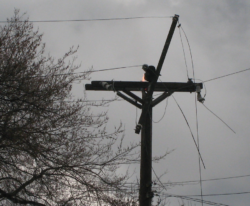
There is much concern about the next hurricane’s arrival to the North Carolina coast. Residents far inland can also be affected by strong winds that can cause trees and power poles to fall. Loss of power can affect many, and be detrimental if you use your freezer for food storage, so prepare now.
Here are food safety tips to keep in mind:
- Keep the refrigerator and freezer doors closed as much as possible to maintain the cold temperature.
- The refrigerator will keep food cold for about 4 hours if it is unopened.
- A full freezer will keep the temperature for approximately 48 hours (24 hours if it is half full) if the door remains closed. If you have space in your freezer, fill sealable plastic containers about 2/3 full of water and place in freezer NOW to provide insulation if the power goes out.
- If you are able, stock up on “no cook” food items for your family.
- If you plan to eat refrigerated or frozen meat, poultry, fish or eggs while it is still at safe temperatures, it’s important that each item is thoroughly cooked to its proper temperature to assure that any foodborne bacteria that may be present are destroyed. However, if at any point the food was above 40 degrees Fahrenheit for 2 hours or more – discard it.
- Wash fruits and vegetables with water from a safe source before eating.
- For infants, try to use prepared, canned baby formula that requires no added water. When using concentrated or powdered formulas, prepare with bottled water if the local water source is potentially contaminated.
Perishable food such as meat, poultry, seafood, milk and eggs that are not kept adequately refrigerated or frozen may cause illness if consumed, even when they are thoroughly cooked.
The North Carolina Cooperative Extension Service has a helpful website full of information.
Get Ready!
Jayne